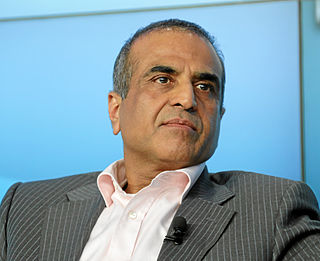Top 667 Manufacturing Quotes & Sayings
Explore popular Manufacturing quotes.
Last updated on November 25, 2024.
Canada, the United States and Mexico, we developed these energy reserves that we have in this North American region. And you can see a not only driving down the cost of electricity but a major manufacturing boom in this country. Couple that with tax policy, reduction, reducing the corporate tax rate, and that I think a renaissance in manufacturing like we've never seen in this country and really drive the economy.
To keep up with the demands of the growing manufacturing sector, our Government is pleased to invest in the establishment of the Saskatchewan Manufacturing Centre of Excellence. Training skilled workers and increasing productivity and innovation are essential to the continued growth and prosperity of Saskatchewan, and Western Canada.
By the way on economics, South Carolina is an example to the country of what we should be doing as Americans. This country has a vast manufacturing base. It is growing in manufacturing where America is shrinking and it's because they have reduced taxes and lower regulatory burdens and been pro-business.
My object, having a surplus to deal with, is to consider how I can deal with it to the greatest advantage to the consumer - how, without inflicting any injury on Canada, I can secure the most substantial benefit to this country, to the manufacturing, to the commercial, and to the agricultural interests. The real way in which we can benefit the working and manufacturing classes is, unquestionably, by removing the burden that presses on the springs of manufactures and commerce.
In the four decades after World War II, manufacturing jobs paid more than other jobs for given skills. But that is much less true today. Increased international competition has forced American manufacturers to reduce costs. As a result, the pay premium for low-skilled workers in manufacturing is smaller than it once was.
The reason Donald Trump was elected was that we automated away four million manufacturing jobs in Michigan, Ohio, Pennsylvania, and Wisconsin. If you look at the voter data, it shows that the higher the level of concentration of manufacturing robots in a district, the more that district voted for Trump.
During the 1960s, and again in the 1970s, growth in manufacturing productivity in the United Kingdom was the lowest of all the seven major industrial countries in the world. During the 1980s, our annual rate of growth of output per head in manufacturing has been the highest of all the seven major industrial countries.
So outside agriculture, in manufacturing and services, we must create a lot more jobs. But that also means that we must ensure that our systems of general education and technical education are in line with the job requirements that a more modern manufacturing and a more modern services sector would require.
Germany is a fascinating role model. The Germans have maintained their manufacturing edge despite being a high-tax, high-regulation economy. Why? Because the government really set about ensuring that it maintained funding for technical training, technical advancements and programs. It made a concerted effort to retain high-end, complex manufacturing -- the kind of BMW model, if you will. And they've done that so successfully that Germany, which has a quarter of America's population, exports more than America does.
We have a very good history of manufacturing in this country but I worry that these skills are being lost. We walk around saying, 'We haven't got any manufacturing any more' but Made In Britain really means something, particularly in other parts of the world. We need to support British manufacturing.
Back in 2005, I introduced a thing which, I don't mind saying this - I mean, we stole it, at least in its basic form, from Toyota - it's called World Class Manufacturing. I mean, it's this pretentious title for something which really involves the revisiting of the manufacturing processes of dedication to the removal of waste.
With living wage jobs, basically 20 million of them to help jump-start a sustainable and healthy economy, with an insured, just transition, for example, for workers in both the fossil fuel and in the weapons industry, because they all need to transition to sustainable forms of production. This is also our answer to the departure of manufacturing jobs and good jobs by creating the manufacturing base here for clean renewable energy and the efficiency systems and public transportation to put these workers to work in jobs that are actually good for them.























































